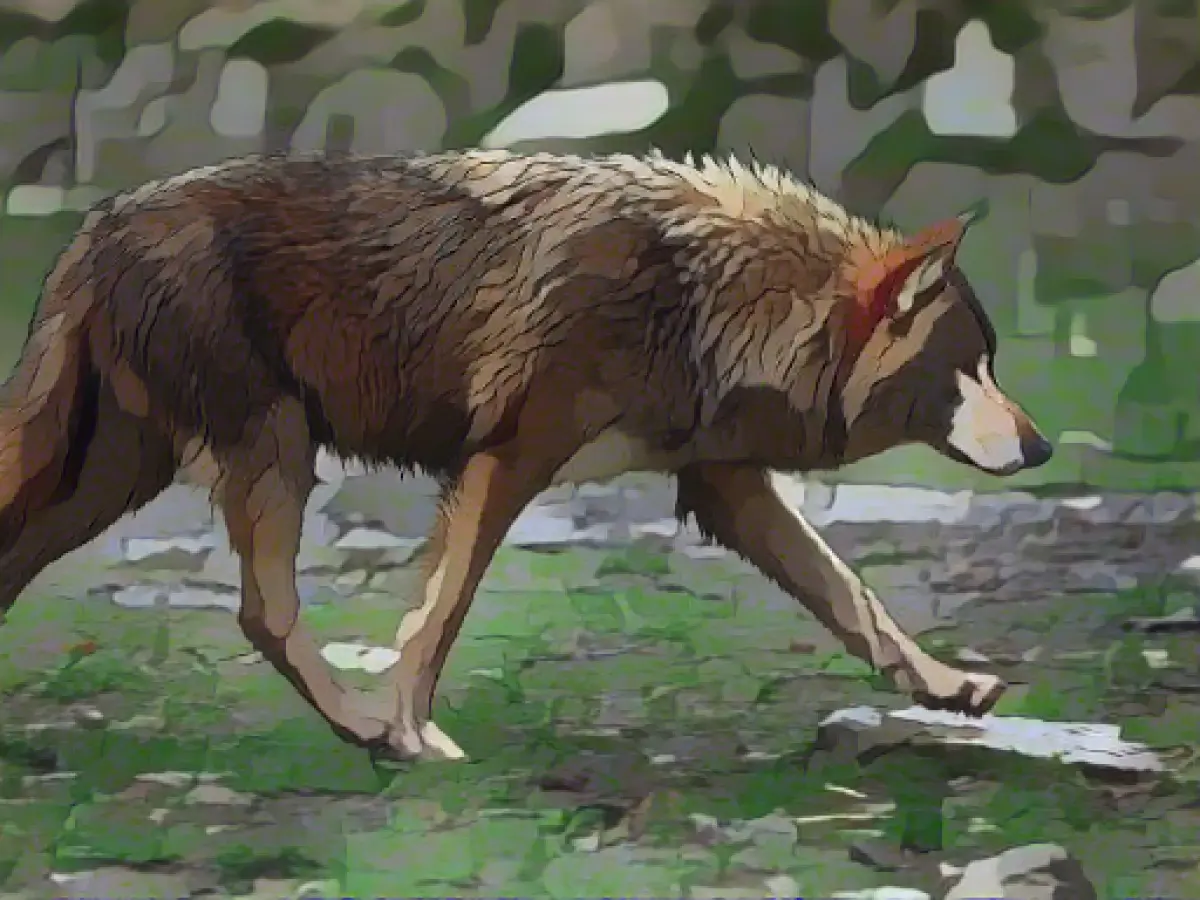Unanimous decision: faster wolf culls possible
Problematic wolves that have breached protective fences and killed livestock are to be killed much more quickly in Germany in future. This was agreed by the federal and state environment ministers at their two-day meeting in Münster, Westphalia, in view of an increase in the number of wolf kills and protests from livestock owners and farmers. One major change is that, unlike previously, there is no need to wait for a DNA analysis.
"We have achieved a breakthrough here," said North Rhine-Westphalia's Environment Minister Oliver Krischer (Greens) as Chairman of the Conference of Environment Ministers. He added that herd protection is crucial for ensuring that grazing livestock farming and wolf populations coexist with as little conflict as possible. "However, we also need a more practical and legally compliant approach nationwide to remove individual wolves that are displaying unusual behavior."
Uniform regulation
Federal Environment Minister Steffi Lemke, who had already presented corresponding proposals in October, emphasized the unanimity of the resolution on dealing with wolves. It allows for rapid shooting if a wolf overcomes the herd protection and kills a farm animal. "This is also a sign of reconciliation that is being sent out today by the Conference of Environment Ministers in order to pacify this social conflict," she emphasized.
The federal states that are particularly affected want to make it possible to shoot wolves more quickly as early as the start of the 2024 grazing season with uniform state ordinances. Mecklenburg-Western Pomerania's Environment Minister Till Backhaus (SPD) announced that talks on this would begin as early as next week. In addition to Mecklenburg-Western Pomerania, the federal states of Schleswig-Holstein, Lower Saxony, Brandenburg, Saxony and Saxony-Anhalt are also involved.
Decision brings "clear sign of legal certainty"
Lemke explained that the EU Commission had confirmed in a letter that this proposal was compatible with EU law. "This means that today's decision is also a clear sign of legal certainty for those in the federal states who have to make the decisions on the ground," she emphasized. It remained unclear how many wolves the rapid cull could affect per year. Lemke explained that it was unreliable to give a figure at this stage.
In areas with an increased number of predators, it should be possible to obtain a shooting permit as soon as the reasonable herd protection has been overcome for the first time and grazing animals have been killed. This should apply for a period of 21 days after the incident, according to a press release. Shooting should be possible within a radius of up to 1000 meters around the affected pasture. The federal states determine the areas in which this regulation applies. Backhaus pleaded for the size of circles.
The number of wolf attacks on livestock increased significantly last year to more than 1000 cases. According to a report, more than 4000 farm animals were killed or injured. The federal government highlights herd protection measures such as fences and livestock guarding dogs as the most effective measures to protect livestock. The environmental association BUND is calling for minimum standards. According to the Federal Environment Ministry, there have been no wolf attacks on humans since wolves returned to Germany over 20 years ago.
Estimates of the number of wolves vary
The shooting of individual conspicuous wolves is already possible today under certain conditions. According to data from the Federal Agency for Nature Conservation, twelve wolves have been killed in Germany with official authorization in several federal states since 2017. According to statistics, there are more than 1,300 wolves in Germany. Farmers', hunters' and riders' associations estimate that there are between 2000 and 3000 wolves. Against this background, further steps have already been called for to regulate the population.
The German Hunting Association (DJV) was disappointed by the agreement reached by the federal states. "It is a simple crack response management, but not a regionally differentiated population management", said DJV President Helmut Dammann-Tamke. The resolution does not even begin to implement the coalition agreement of the federal government. According to Dammann-Tamke, it had failed to set the course for conflict-free coexistence with wolves.
- At the conferences, environmental ministers discussed the issue of wolf culls, deciding to speed up the process for problematic wolves that have breached safety fences and harmed farm animals.
- Science is crucial in understanding the behavior of wolves in the environment and developing effective measures for herd protection, such as the use of farmers' fences and livestock guarding dogs.
- Agriculture and livestock farmers have expressed concerns about the impact of wolves on their animals, leading to calls for more practical and legally compliant methods of dealing with individual wolves exhibiting unusual behavior.
- In light of an increase in wolf kills and protests from farmers, federal and state environment ministers agreed on the need for a uniform regulation that allows for rapid shooting of wolves that have breached herd protection and killed farm animals.
- The decision to speed up wolf culls has been met with mixed reactions from organizations such as the German Hunting Association, which believes that a more regionally differentiated population management approach would be more effective in achieving conflict-free coexistence with wolves.
- Environmental associations have called for minimum standards for herd protection measures and the humane treatment of wolf populations, emphasizing the importance of preserving biodiversity and maintaining a balance between wildlife and human activities.
Source: www.dpa.com








